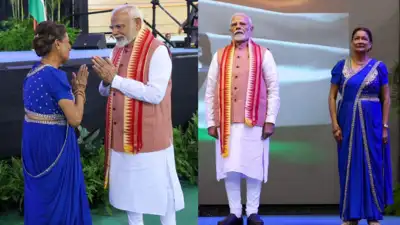New Delhi/ Port of Spain – Prime Minister Narendra Modi received a warm and culturally rich welcome during his visit to Trinidad and Tobago, where he addressed a large and enthusiastic gathering of the Indian diaspora. The visit marked the 180th anniversary of the arrival of Indian indentured labourers to the Caribbean nation — a journey that has since evolved into a vibrant cultural legacy and a powerful symbol of resilience.
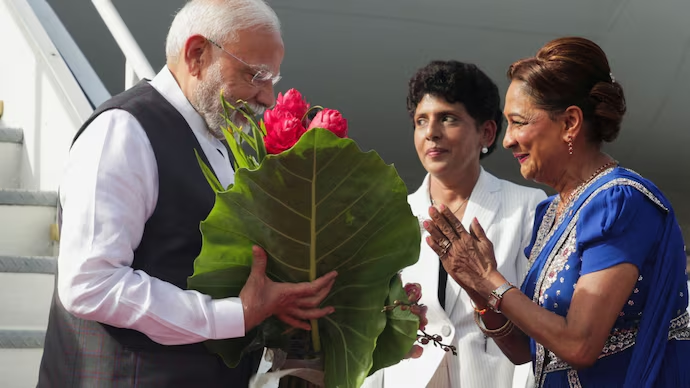
Trinidad & Tobago’s Prime Minister Kamla Persad-Bissessar welcomed Prime Minister Modi and announced that the nation would confer upon him its highest civilian honour, The Order of the Republic of Trinidad & Tobago. Expressing deep gratitude, Prime Minister Modi dedicated this recognition to the long-standing friendship between the two nations and the enduring spirit of the diaspora community.
In his stirring address, Prime Minister Modi paid glowing tribute to the Indian-origin population of Trinidad & Tobago, calling their journey from indentured labour to modern leadership a powerful story of strength and dignity. He praised the community for preserving Indian cultural traditions, language, and values despite generations of distance and change.
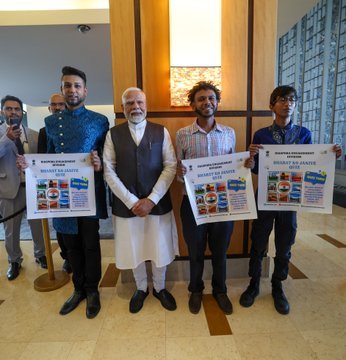
To reinforce this connection, Prime Minister Modi announced the extension of the Overseas Citizen of India (OCI) card eligibility to sixth-generation descendants in Trinidad & Tobago. This significant move, met with thunderous applause, aims to further strengthen ties with the global Girmitiya community. He also shared that several initiatives would be launched to honour and document their heritage.
Shifting focus to India’s transformation, Prime Minister Modi outlined the country’s rapid advancements in infrastructure, innovation, digital technology, and green energy. He highlighted that more than 250 million Indians had been lifted out of poverty in the last decade, and the nation is now on the verge of becoming one of the top three global economies.
Emphasizing India’s leadership in space exploration and digital revolution, he pointed to the success of UPI-based digital payments. He expressed hope that such technology would soon be adopted in Trinidad & Tobago, enhancing economic interaction and digital inclusion.
Prime Minister Modi reflected on India’s guiding philosophy of Vasudhaiva Kutumbakam — the world is one family — and cited the nation’s humanitarian approach during the COVID-19 crisis as an example of that spirit. He affirmed India’s continued support to Trinidad & Tobago in its nation-building journey.
Cultural Exchange and Emotional Resonance; The evening in Port of Spain was infused with music, dance, and shared memories. A cultural programme, attended by over 4,000 people, showcased traditional Indian and Indo-Trinidadian art forms. Performances by artists from the Mahatma Gandhi Institute for Cultural Cooperation brought alive the legacy of Indian culture overseas.
Prime Minister Modi appreciated a vibrant Bhojpuri Chautaal performance, noting its roots in eastern Uttar Pradesh and Bihar. He highlighted how this cultural link continues to flourish in the Caribbean, acting as a living bridge between generations and geographies.
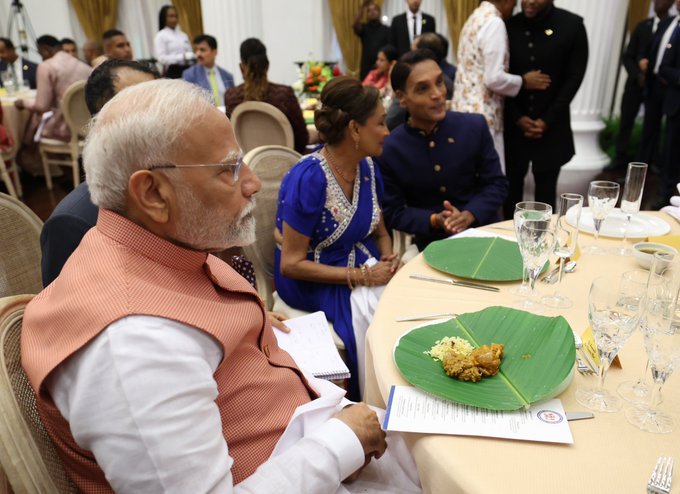
At a dinner hosted by Prime Minister Bissessar, food was served on traditional Sohari leaves, symbolizing a deep cultural practice still cherished among Indo-Trinidadians. Prime Minister Modi met Mr. Rana Mohip, known for singing Vaishnava Jana To during Mahatma Gandhi’s 150th birth anniversary, and praised his passion for Indian music and values.
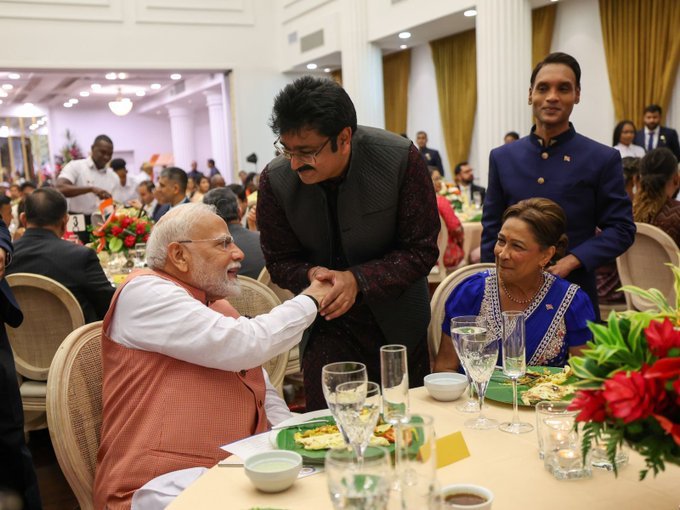
He also interacted with young diaspora achievers such as Shankar Ramjattan, Nicholas Maraj, and Vince Mahato, winners of the Bharat Ko Janiye quiz. Their involvement demonstrated how India continues to inspire its youth abroad to remain connected to their roots.
Prime Minister Modi paid homage to Swami Vivekananda on his Punya Tithi, highlighting his teachings as timeless beacons of strength, cultural pride, and national self-confidence. He said that Vivekananda’s vision remains central to shaping a society rooted in values yet prepared for global progress.
As the visit concluded, Prime Minister Modi’s message was clear — while geography may separate the Indian diaspora from their ancestral homeland, the bond of culture, tradition, and progress continues to unite them. His outreach in Trinidad & Tobago was not just a diplomatic engagement but a heartfelt celebration of shared identity, mutual respect, and a collective future.


